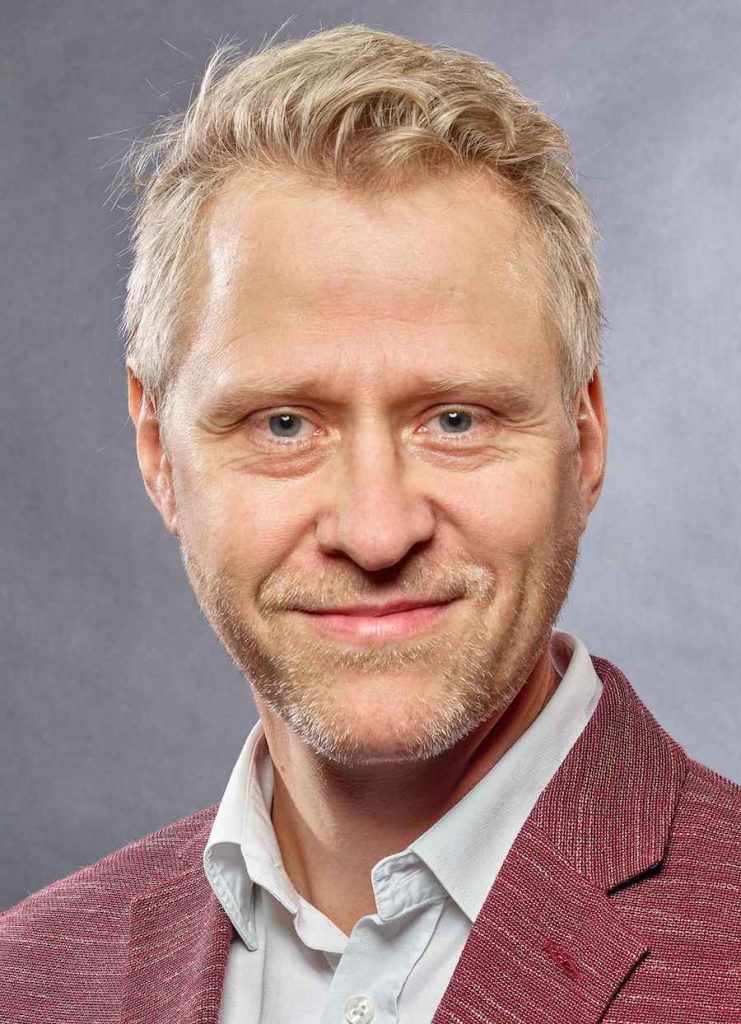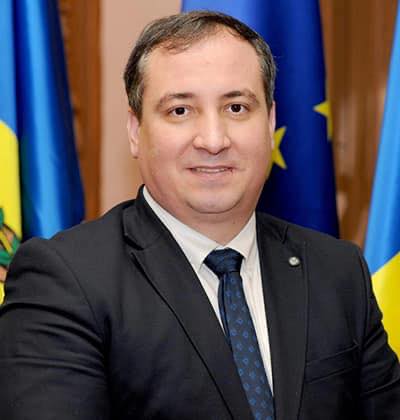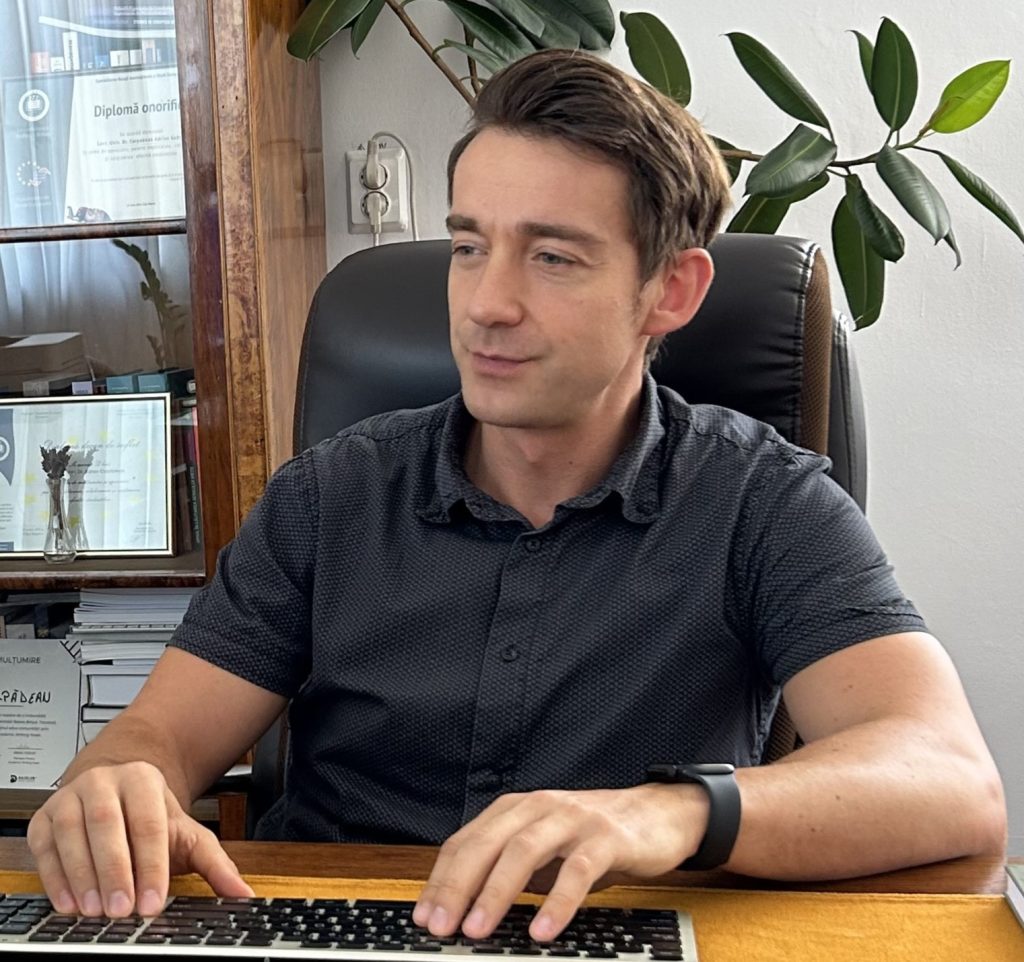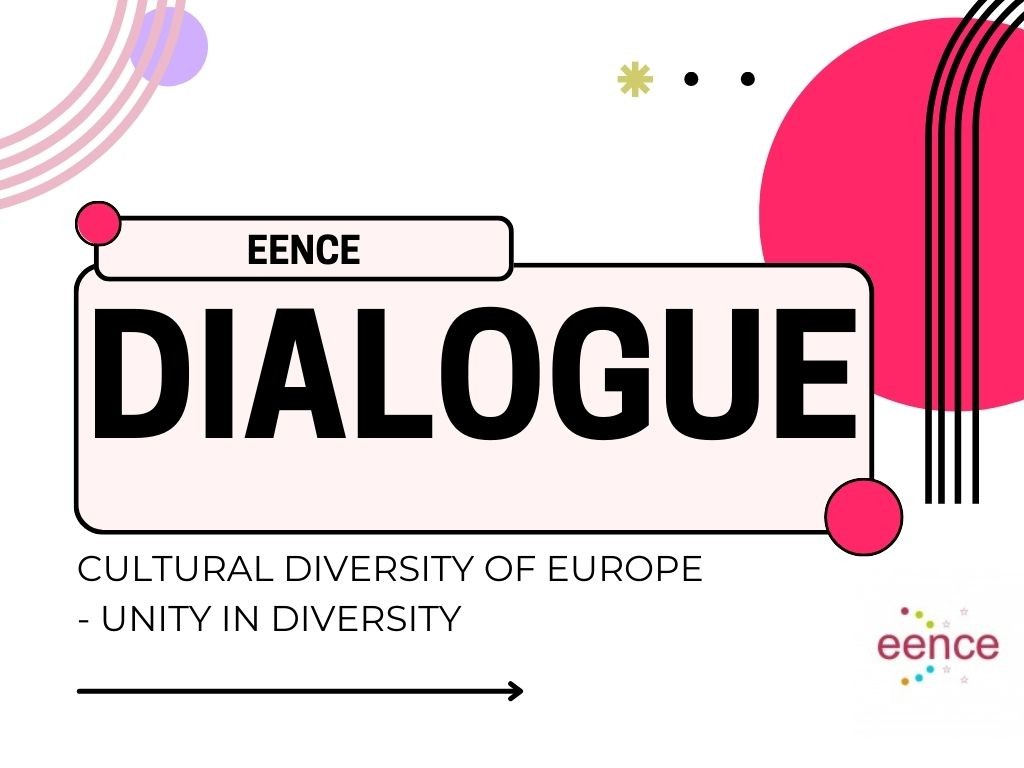Cultural Diversity of Europe – unity in diversity
Cultural diversity plays a crucial role in fostering social cohesion by promoting understanding, acceptance, and mutual respect among individuals from different backgrounds. In today’s interconnected world, recognizing and appreciating the richness of diverse cultures helps bridge gaps, reduce prejudice, and strengthen communities. You are invited to another webinar that is being held as part of the EENCE-Dialogue programme.
Date: October, 23 (15:00-18:00 CET).
Program:
- Introduction (15 minutes): Overview of Cultural Diversity.
- Keynote Speech (30 minutes): Michał Nowosielski, WSB Merito University in Gdańsk, Centre of Migration Research at the University of Warsaw
- Panel Discussion (45 minutes: Adrian Corpadean, Faculty of European Studies at Babeș-Bolyai University in Cluj-Napoca, Romania; Andrei Chistol, State Secretary at the Ministry of Culture of the Republic of Moldova
- Q&A Session (30 minutes): Interactive session with attendees.
- Evaluation and Follow-up (15 minutes)
Working languages: English and Russian (simultaneous translation).
ZOOM Registration: https://us06web.zoom.us/meeting/register/tZ0qduqhqzItHdO6o2WlHjwiQS981QdLOQlw
Once registered, you will receive a confirmation email with conference login information.
Moderator: Sergiu Musteata (Moldova).
Information about speakers:
Michał NOWOSIELSKI
Professor at the WSB Merito University in Gdańsk, an affiliate in the Centre of Migration Research at the University of Warsaw, and a member of the IMISCOE Standing Committee DIVCULT. Principal investigator in numerous research projects, like: ‘Foreigners – Varsovians. Diagnosis and recommendations for integration activities’, or ‘Polish immigrant organizations in Europe’. His academic interests concentrate on migration issues, particularly immigrant organizations, culture & and migration, diaspora policies, and migrants’ inclusion.


Andrei CHISTOL
Is the State Secretary at the Ministry of Culture of the Republic of Moldova. With a fervent dedication to promoting cultural heritage, arts, and creativity, Andrei has been instrumental in shaping policies and initiatives that enhance Moldova’s cultural landscape. Andrei Chistol is actively involved in the advancement of tourism and creative industries in Moldova. He works tirelessly to promote the country’s rich cultural heritage as a cornerstone of its tourism appeal. Throughout his career, Andrei has been a staunch advocate for cultural preservation, innovation, and inclusivity. He has spearheaded numerous projects aimed at revitalizing traditional arts, fostering cultural exchanges, and nurturing emerging talents within Moldova and beyond.
Adrian-Gabriel CORPĂDEAN
A habilitated associate professor and dean of the Faculty of European Studies at Babeș-Bolyai University in Cluj-Napoca, Romania (since 2020). A graduate in international relations and European studies, he holds a master’s degree in European affairs and project management at the Faculty of European Studies. He holds a doctorate in history from UBB and Université de Cergy-Pontoise and completed his postdoctoral studies at the Romanian Academy. He specializes in EU institutional reform, the history of European integration and EU enlargement policy, which have been the subject of over 70 publications, 40 conferences and 10 international projects implemented by Dr Corpădean. He frequently collaborates with DG Communication of the European Commission and the Representation of the European Commission in Romania. He is an editor of the international journals Synergies Roumanie, Modelling the New Europe and Studia Europaea. He speaks fluent English, French and Italian.

Abstracts
Michał NOWOSIELSKI, ‘Towards Migrant Civil Society?“
This lecture explores the social activity of migrants through the lens of social capital and civil society. It focuses on two types of social capital: bonding, which strengthens ties within ethnic groups, and bridging, which connects migrants to the broader society. While bonding capital offers essential support, it can sometimes hinder integration, whereas bridging capital promotes relationships beyond ethnic communities, aiding integration.
The lecture also introduces the concept of “migrant civil society” and its influence on public discourse and integration efforts. Furthermore, it discusses migrant engagement within both their ethnic groups and the wider host community, with a special emphasis on migrant organizations. These organizations play a crucial role, not only in fostering migrant civil society but also in supporting migrant integration.
Adrian CORPADEAN, “Rediscovering the potential for cooperation with Ukraine from the perspective of Babeș-Bolyai University”
Russia’s war of aggression against Ukraine has triggered a genuine rediscovery of the need for better dialogue between Romania and Ukraine, with far-reaching consequences germane to synergies in international bodies, political dialogue and closeness amid EU integration.
This has largely been echoed by positive developments at the level of civil society, whose mobilisation has been quite exemplary concerning the management of the refugee crisis triggered by the war. One more notable achievement pertains to the potential for academic and scientific collaboration seen through the lens of Romanian and Ukrainian universities, with Babeș-Bolyai, as the oldest and largest university in Romania, implementing creative measures in this regard, in keeping with its multicultural breadth.
Some of the projects engendered as such may serve as best practice examples for further enhancing bilateral ties between the aforementioned neighbouring countries, tapping into the potential of border communities, mobility arrangements, research on topics of mutual interest etc.
EENCE Dialogue is organised by the Eastern European Association for Citizenship Education with the support of the Federal Agency for Civic Education (bpb) with funds from the German Ministry of Foreign Affairs.


